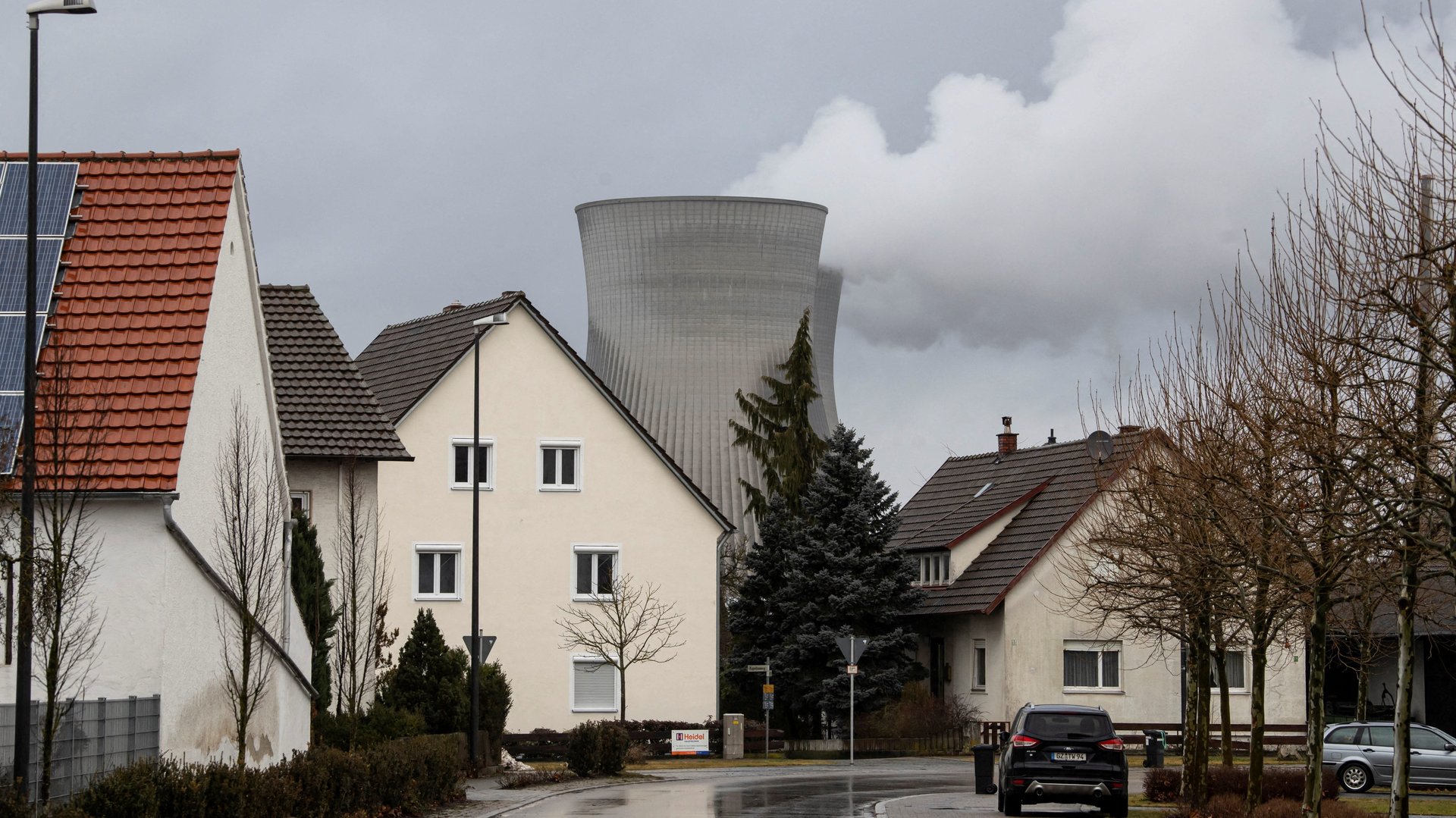Germany’s exit from nuclear energy will make its power dirtier and more expensive
Germany closed three of its remaining six nuclear power plants on Dec. 31 as it phases out a major source of the country’s low-carbon power. Much of the shortfall will be made up by burning natural gas, now at record high prices, until renewables can fill the gap later this decade. The shuttered plants produced about 6% of the country’s power in 2021, equal to about 1,000 wind turbines; the remaining three are due to close by the end of 2022.


Germany closed three of its remaining six nuclear power plants on Dec. 31 as it phases out a major source of the country’s low-carbon power. Much of the shortfall will be made up by burning natural gas, now at record high prices, until renewables can fill the gap later this decade. The shuttered plants produced about 6% of the country’s power in 2021, equal to about 1,000 wind turbines; the remaining three are due to close by the end of 2022.
Despite its ambitious climate change mitigation targets, Germany has been Europe’s chief opponent to nuclear power since at least the 2011 Fukushima disaster in Japan, following which former chancellor Angela Merkel committed the country to a full nuclear phase-out. France, meanwhile, is pushing to build more reactors, and a draft proposal leaked to Reuters this week indicates the European Commission will permit financiers to designate most new nuclear projects as a “green investment.”
Although Germany has committed to source 80% of its electricity from renewables by 2030, its nuclear rollback has slowed its short-term progress on reducing greenhouse gas emissions and will force it to rely on fossil fuels longer than its peers. Germany (pdf) and the UK (pdf), for example, both source about 44% of their electricity from renewables. But the UK plans to eliminate its use of coal by 2024; Germany plans to use coal until 2030 (the country is also Europe’s largest coal producer). And while Germany’s energy-related emissions have fallen only slightly more than the EU as a whole (almost in half compared to 1990), in the UK, where the relative share of nuclear in the electricity mix has increased over time, emissions have fallen by 65%.
Germany’s nuclear power phaseout is good news for Russia
The phaseout coincides with soaring prices for natural gas across Europe, brought on by cold weather, the resumption of economic activity, and lower-than-average imports from Russia, which supplies most of the continent’s gas. In November, German regulators slammed the brakes on the Nord Stream 2, a proposed undersea gas pipeline between Russia and Germany, meaning that Russian exports are unlikely to get a boost soon. Still, the closed nuclear plants mean more demand for Russian gas, at least in the short term, suggesting emissions and prices for electricity in Germany will rise.
That’s what happened last December in France, when four nuclear reactors were temporarily closed for maintenance. Public polling in September suggested that rising energy prices have some Germans reconsidering their opposition to nuclear power.
For now, Germany’s position on nuclear puts it at odds with much of the rest of the world. China is planning a massive buildout of nuclear power to meet its climate agenda. In the US, energy economists are urging officials in California and other states not to close existing plants. Qatar, Canada, the US, South Africa, Kazakhstan, and other countries are also now considering new nuclear plant designs as technological advances address some of the cost, safety, and waste disposal concerns of the past.